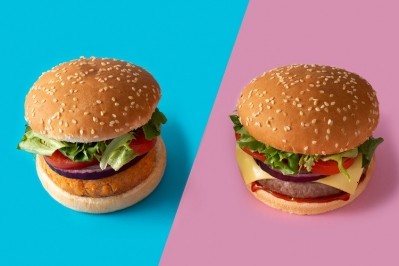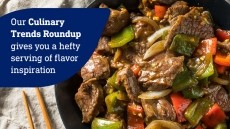Me vs. others, status vs. group: The values that drive alternative meat consumption

In recent years, growth in the meat alternative category has seen a slowdown (or, some suggest, a ‘shakedown’). While many understandably want to know why it is slowing, the opposite – what drives people to buy plant-based meats – could prove invaluable to plant-based meat producers.
A new study published in the journal Appetite looks into the motivations behind people who do eat meat alternatives, and suggests what kind of marketing is needed to effectively target such consumers.
Reasons for market success and failure
Previous studies on plant-based meat consumption have found that some of the primary barriers towards plant-based meat consumption is its association with ‘disgust’ and, even more prominently, ‘neophobia,’ the fear of the new.
Conversely, a positive attitude towards innovation and technology and attachment to meat in general has been linked to a desire to eat meat alternatives, as has the desire to consume healthier, more ethical and more sustainable foods.
These are personal values, which in many ways influence how consumers lead their lives. According to the study, personal values are more fundamental than motives, and in fact ‘set the scene’ for what motives the holders of values form. The present study explored which personal values influence the decision to consume meat alternative products.
As a framework, the study used the ten basic personal values, further sorted into four more prominent overarching values, developed in 1992 by social psychologist Shalom H. Schwarz. These are: self-enhancement (which consists of basic values achievement and power), openness to change (which includes basic values self-direction, hedonism, and stimulation), self-transcendence (including basic values benevolence and universalism), and conservation (consisting of basic values security, conformity, and tradition).
The four main values are further put into conflicting pairs: openness to change vs. conservation, and self-enhancement vs. self-transcendence.
Beginning with the idea that these personal values would influence interest, or lack of interest, in meat alternatives, the study predicted that those who are more interested in self-enhancement and conservation would be less interested in meat alternatives, while those who value openness to change and self-transcendence would be more interested in them. The study also predicted that concern for social status would underlie the relationship between openness to change and self-enhancement and interest in meat alternatives, whereas group affiliation would underlie interest in the relationship between self-transcendence and conservation and meat alternatives.
The social values of meat alternative consumption
Using data of consumers from the UK, Germany, Sweden and Finland collected through an online survey, the study found that self-focused values such as self-enhancement and openness to change do not affect consumer interest in meat alternatives. However, self-transcendence values had a positive correlation to interest in meat alternatives, whereas interest in conservation had a negative one.
Importantly, there was no negative correlation between a desire for self-enhancement and interest in meat alternatives. This is, the study suggests, 'interesting', given the association between animal meat and power. There was also no positive correlation between interest in meat alternatives and openness to change, which, the study suggested, might have something to do with the inclusion of the value ‘hedonism.’ The other two values were correlated how the researchers expected, and how previous studies had showed them to be.
Furthermore, those who valued self-enhancement were driven by desire for status, and those valuing self-transcendence and conservation were driven by group affiliation.
In the case of status and group affiliation, all hypotheses except one were shown to be correct. Openness to change was not associated with the desire for status as the researchers had predicted – they suggest it may be something to do with the inclusion of ‘hedonism’ as a value in this category.
Marketing techniques
The only value category that had a positive correlation with interest in meat production was self-transcendence so, the study suggests, marketing for meat alternatives must appeal to universalism and benevolence.
The study also suggests that marketing can, for the other value categories, market meat alternatives by assuring these consumers that the product aligns with their core values. For example, when marketing towards those who value self-enhancement, they should be marketed as luxurious; when marketing towards those who value conservation, aspects such as environmental benefits should be omitted. At their core, marketing techniques should reduce incongruity between consumers’ values and the marketed product.
Sourced From: Appetite
'Is it me or others who matter? The interplay between consumer values vis-à-vis status and affiliation motives as shapers of meat alternative interest’
Published on: 3 November 2023
Doi: https://doi.org/10.1016/j.appet.2023.107114
Authors: K. Pennanen, R. Malila , H. T. Luomala
















